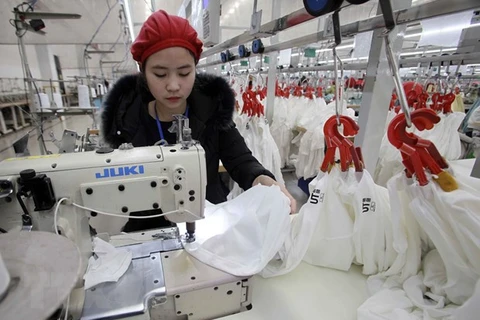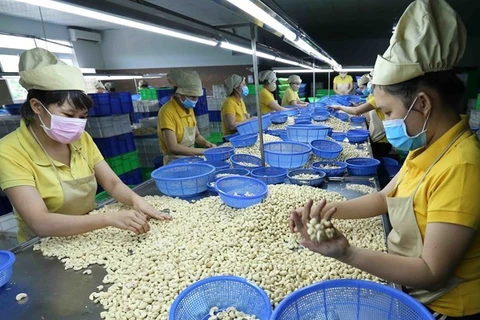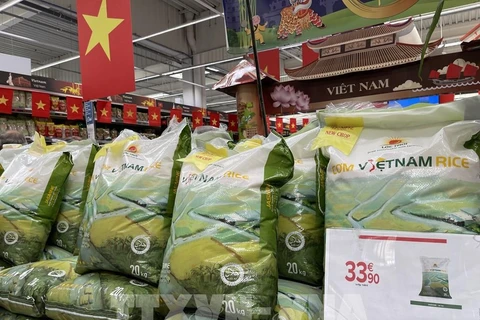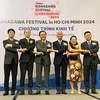 The EU-Vietnam Free Trade Agreement (EVFTA) has generated positive results, according to Dr. Daniel Müller. (Photo: VNA)
The EU-Vietnam Free Trade Agreement (EVFTA) has generated positive results, according to Dr. Daniel Müller. (Photo: VNA) He cited data from the German Federal Statistics Office in August as showing that the trade hit 64.3 billion EUR (70.26 billion USD) and that between Vietnam and Germany was 18.1 billion EUR in 2022. In the year, Vietnam enjoyed a 38.9 billion EUR trade surplus with the EU and 11.3 billion EUR with Germany.
The direct and positive effects of the EVFTA on this increase in trade volumes are reasonable, he said, adding that trade in services also increased, bringing a surplus to the EU.
For German businesses, the deal is considered an important "addition" in establishing new economic relations or expanding existing commitments with Vietnam. As the EVFTA will gradually eliminate tariffs over the next few years, further positive effects can be expected, he said.
Dr. Müller said that thanks to the EVFTA, access to particular trade areas in Vietnam has become binding and more reliable. The competitive advantages that Vietnam has enjoyed when joining the EVFTA have also made other ASEAN countries such as Thailand and Indonesia more interested in a similar deal with the EU, he added.
Overall, the deal has generated good outcomes for both sides, he said, noting Vietnam’s export has risen considerably and EU and Germany have benefited from importing goods from Vietnam.
 Dr. Daniel Müller, Regional Manager for ASEAN at the German Asia-Pacific Business Association. (Photo: VNA)
Dr. Daniel Müller, Regional Manager for ASEAN at the German Asia-Pacific Business Association. (Photo: VNA) He advised Vietnamese firms to enhance their export capacity. The Vietnamese Government should continue to implement commitments, especially in improving the legal framework for foreign businesses, including the protection of intellectual property rights.
Meanwhile, it remains to be seen how the Supply Chain Act, which has now taken effect from Germany and a similar law coming from the EU, will have an impact on the supply chain from Vietnam, he said.
Dr. Müller highlighted the advantages in bilateral cooperation as the economies and businesses of the two sides can greatly supplement each other. German companies, with their technology and experience, can contribute to the automation and digitisation of the production processes in Vietnamese companies as well as the improvement of productivity in Vietnam.
He held that the two sides can work together to build and develop a network of suppliers for the demanding industrial production of German companies in Vietnam. The two sides can also collaborate in the workforce development. German companies should systematically support their partners in Vietnam to help them meet the strict standards of exporting into the EU and also to increase the resilience of the supply chain.
However, the expert advised businesses to carefully explore each other’s characteristics as well as the business culture to avoid uncertainties and even disappointments. Regular exchanges and contacts between businesses of the two countries can be a solution to this problem, he suggested./.
VNA























